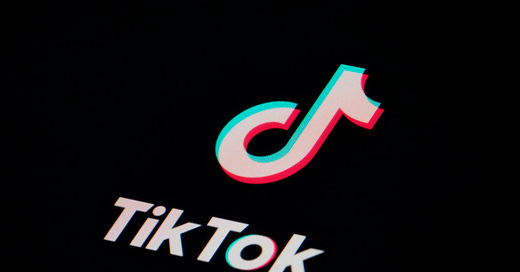
The TikTok Ban: A Turning Point for Social Media, Income, and Innovation
Over the past five years, TikTok has become a cultural and economic powerhouse. Its highly sophisticated algorithm, ability to foster community, and role as a revenue generator for millions of creators have made it indispensable to the digital landscape. However, with the looming prospect of a U.S. ban, we must examine what this means for creators, businesses, and the broader conversation about free enterprise and government intervention.
TikTok: A Revenue Source Redefining Income
For millions of users, TikTok is more than a social platform—it's an income stream. Creators monetize their content through brand deals, product sales, and TikTok's Creator Fund, earning anywhere from supplemental income to full-time salaries.
Supplemental Income: Small creators leverage TikTok to promote side hustles, Etsy stores, or local businesses.
Full-Time Livelihoods: Influencers with large followings use TikTok as their primary source of income, working with global brands or launching personal product lines.
Small Business Growth: For folks like us at Farm4Profit; entrepreneurs have scaled operations thanks to TikTok's organic reach, which allows them to connect with millions without massive marketing budgets.
A ban would threaten these revenue streams, potentially leaving countless creators and small businesses in financial limbo.
The Algorithm: TikTok's Secret Sauce
TikTok's algorithm sets it apart from any other platform. Its ability to deliver hyper-relevant content keeps users engaged, creating a feedback loop of discovery, entertainment, and inspiration. The "For You" page has:
Democratized Content Creation: A small creator can go viral overnight, leveling the playing field.
Amplified Niche Communities: From #BookTok to #FarmTok, TikTok has united millions with shared interests, building robust, supportive online ecosystems.
Enhanced Information Sharing: Whether it's breaking news, DIY tutorials, or cultural trends, TikTok has become a vital tool for education and awareness.
This unique capability makes TikTok invaluable to creators and consumers alike, and its absence would leave a noticeable void in the social media landscape.
TikTok's Role in Community and Information
TikTok isn't just an entertainment platform; it's a hub for connection and education. Over the last five years, the app has:
Helped marginalized communities find their voice.
Amplified important social justice causes.
Provided a platform for information sharing during critical moments, from natural disasters to global pandemics.
It's hard to overstate TikTok's role in bringing people together across borders and backgrounds.
The U.S. Government and the TikTok Debate
The TikTok ban underscores a fascinating intersection of technology, national security, and governance. In the U.S., this debate has played out across the three branches of government:
Executive Branch: Presidents Trump and Biden have raised concerns about data privacy and national security, leading efforts to restrict or ban TikTok and now working to reinstate it.
Legislative Branch: Congress has debated TikTok's implications for cybersecurity and data privacy, with lawmakers from both parties voicing concerns.
Judicial Branch: Courts have stepped in to evaluate the legality of proposed bans, balancing government interests with the First Amendment and economic freedoms.
This multi-faceted scrutiny reflects the complexity of managing foreign-owned tech giants in a global economy.
The Path Forward: A Solution in the Works?
Soo to be inaugurated President Trump recently took to Truth Social to propose a potential solution: a 50% U.S. ownership stake in TikTok. This idea could address national security concerns while preserving the platform’s immense value to creators, businesses, and users. By securing a significant U.S. ownership share, the government could ensure transparency and accountability without outright banning the platform.
Final Thoughts
The potential TikTok ban is more than a policy decision; it’s a moment that challenges how we view technology, innovation, and the role of government in free enterprise. As a society, we must weigh the risks and rewards, recognizing TikTok’s unique ability to generate income, foster community, and revolutionize information sharing.
Moving forward, it’s critical to find solutions that safeguard national interests while preserving the opportunities TikTok has created. The debate over TikTok’s future isn’t just about an app—it’s about the evolving intersection of technology, culture, and governance in our digital age.
Bottom of Form





